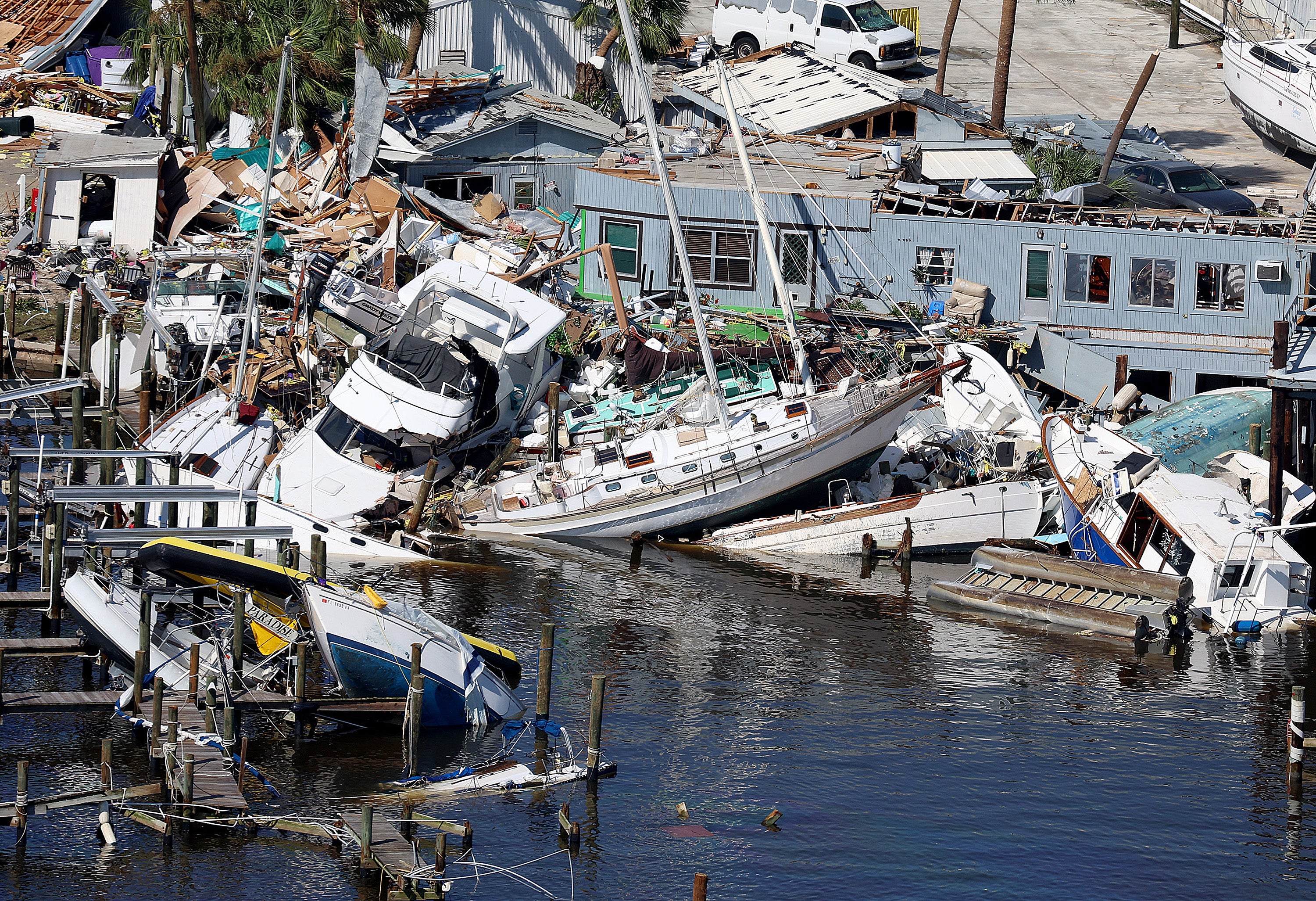Climate change increased Hurricane Ian’s extreme rain, analysis shows
The climate crisis doesn’t cause hurricanes, but it causes them to be more intense
Your support helps us to tell the story
From reproductive rights to climate change to Big Tech, The Independent is on the ground when the story is developing. Whether it's investigating the financials of Elon Musk's pro-Trump PAC or producing our latest documentary, 'The A Word', which shines a light on the American women fighting for reproductive rights, we know how important it is to parse out the facts from the messaging.
At such a critical moment in US history, we need reporters on the ground. Your donation allows us to keep sending journalists to speak to both sides of the story.
The Independent is trusted by Americans across the entire political spectrum. And unlike many other quality news outlets, we choose not to lock Americans out of our reporting and analysis with paywalls. We believe quality journalism should be available to everyone, paid for by those who can afford it.
Your support makes all the difference.The climate crisis increased Hurricane Ian’s rainfall by at least 10 per cent, according to new analysis by US scientists.
Michael Wehner, a senior climate scientist at the Lawrence Berkeley National Laboratory and an author on a United Nations assessment on climate science, said the estimates were “conservative”, adding that his best calculation was that the rainfall was around 14 per cent heavier due to human-induced global heating.
Hurricane Ian is headed for South Carolina’s coast on Friday having ravaged the state of Florida on Thursday. The number of fatalities and the scale of the destruction are still being accounted for as the eye of the storm bears down on the more northerly state.
The new rapid analysis by experts on extreme weather and the climate crisis is yet to be published or peer-reviewed, but they used the same methodology as in their peer-reviewed study of the 2020 hurricane season.
The climate crisis doesn’t cause hurricanes, but it does cause them to be more intense.
For example, extreme rainfall from these types of storms has increased substantially, according to the World Weather Attribution initiative of climate scientists. That’s because the atmosphere is warmer, and so more moisture is present to fall as rain.
Storm surges can also be higher due to rising sea levels caused by global heating. And thirdly, a warmer ocean can drive these types of intense storms giving them fuel.
“Climate change therefore, creates the conditions in which more powerful storms can form, intensify rapidly and persist to reach land while carrying more water,” the WWA scientists say in a written briefing for journalists.

However, while there has been a broad increase in the most intense storms over time, scientists cannot yet assess whether an individual storm was intensified overall by the climate crisis. Instead, so-called “attribution” studies tend to focus on increases in rainfall and storm surge.
Professor Wehner said it is likely Hurricane Ian’s winds were greater too but said it was difficult to put a figure on.



Join our commenting forum
Join thought-provoking conversations, follow other Independent readers and see their replies
Comments